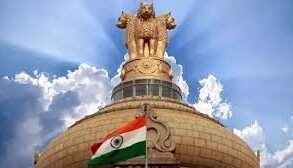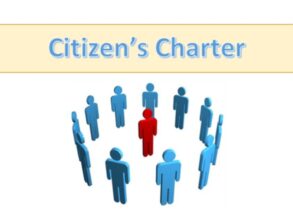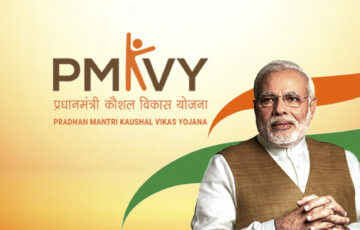The Role of Civil Services in Democracy – Part 2
Relevance
- GS Paper 2 Role of civil services in a democracy.
- GS Paper 4 Public/Civil Service Values and Ethics in Public Administration.
- Tags: #upsc #civilservants #civilservices #gspaper2.
Civil services play a vital role in the effective functioning of a democracy. These administrative bodies, often referred to as the backbone of government operations, are tasked with the implementation of government policies, the delivery of public services, and upholding the rule of law. In a democracy like India, civil services have a unique and central role in ensuring governance, and their importance cannot be overstated.
Advantages of Civil Services in a Democracy
- Policy Implementation: Civil services are instrumental in translating government policies into actionable plans. They serve as the bridge between elected representatives and the actual execution of policies, ensuring that they reach the intended beneficiaries. Public Service Delivery: The effectiveness of public services, such as healthcare, education, and public infrastructure, heavily relies on the efficiency and integrity of civil servants. They are responsible for delivering essential services to the citizens, and the quality of these services has a direct impact on the well-being of the population.
- Upholding the Rule of Law: Civil servants are essential in upholding the rule of law, ensuring that government actions are in line with the constitution and the legal framework. They act as guardians of the legal and ethical standards of the nation.
- Continuity and Stability: They possess the institutional memory, experience, and expertise required to keep government functions running smoothly even when political transitions occur.
- Advisory Role: Civil servants often provide valuable advice and expertise to elected officials. Their knowledge and experience are invaluable in making informed policy decisions and in addressing complex issues that may require technical or specialized understanding.
- Accountability: This accountability is crucial in a democracy, as it ensures that actions and policies are carried out transparently and in the best interest of the public.
Challenges of Civil Services in a Democracy
- Political Interference: One of the primary challenges faced by civil services in a democracy is political interference. In some cases, politicians may attempt to exert influence over bureaucratic decisions or appointments, compromising the neutrality and effectiveness of civil servants.
- Bureaucratic Inefficiency: Bureaucratic red tape and inefficiency can hinder the timely and effective delivery of public services. Streamlining bureaucratic processes and promoting efficiency is an ongoing challenge.
- Corruption: Corruption within civil services can erode public trust and undermine democratic values. It is essential to have mechanisms in place to prevent and address corruption among civil servants.
- Lack of Accountability: While civil servants are responsible for implementing government policies, the lack of accountability in some instances can lead to inadequate oversight and, in rare cases, misuse of power.
- Limited Representation: In some democracies, civil services may lack diversity and equal representation. This can lead to a lack of understanding and responsiveness to the diverse needs of the population.
- Rigidity in Decision-Making: Bureaucratic rigidity can hinder innovative and flexible decision-making. Encouraging adaptability and responsiveness is a challenge in maintaining the relevance of civil services.
The 2nd ARC put forth the following recommendations
- Implement a two-phase review system for all government servants, with the first review conducted after 14 years of service and the second after 20 years.
- The initial review at the 14-year mark should primarily focus on providing public servants with feedback on their strengths and areas needing improvement to guide their future professional development.
- The subsequent review at the 20-year milestone should primarily assess the fitness and suitability of the officer for continued government service.
- Government servants found to be unfit during the second review at the 20-year mark should have their services discontinued.
- A provision addressing this review process should be incorporated into the proposed Civil Services Law.
- New appointments to government services should explicitly state that the employment period shall extend for 20 years.
Constitutional Provisions and Safeguards
- Article 311: This article serves as a safeguard for civil servants, delineating the conditions under which they can be dismissed or removed from service. It mandates that the procedure established by law must be adhered to, ensuring due process and fair treatment.
- All India Services: The Constitution establishes the framework for All India Services, such as the Indian Administrative Service (IAS), Indian Police Service (IPS), and Indian Forest Service (IFoS). These services ensure uniformity and efficiency in administrative functions across the nation.
- Judicial Review: The Constitution empowers the judiciary with the authority to scrutinize administrative actions. This review mechanism ensures that civil servants adhere to legal and constitutional standards, serving as a check against potential abuses of power.
- Article 53 and 154: These articles allocate executive power to the President or Governor directly or through subordinate officers. These officers constitute the permanent civil service and are regulated by Part XIV of the Constitution, covering services under the Union and States (Articles 308-323).
- Article 309: This constitutional provision empowers the Parliament and State legislatures to regulate the recruitment and conditions of civil servents.
- Article 310: It introduces the Doctrine of Pleasure, indicating that individuals in the Defence service, Civil Service.
- Article 311: Article 311 specifically addresses the dismissal, removal, or reduction in rank of individuals employed in civil capacities under the Union or a State, reinforcing due process and protection for civil servants.
- Article 312: Article 312 is dedicated to the All India Services, providing a constitutional basis for these services’ existence and functioning.
- Article 323A: This article paves the way for the establishment of Administrative Tribunals.
- Government of India (Transaction of Business) Rules: The rules dictate the manner in which officers assist the President or Governor in exercising their executive functions, providing a structured framework for government operations.
As the nation moves forward, it is vital to continue strengthening and reforming civil services, aligning them with the evolving needs of a vibrant democracy. The combination of robust constitutional safeguards and a commitment to addressing the challenges that arise will ensure that civil services remain a vital force in the democratic machinery, upholding the principles of governance, accountability, and the rule of law.
| Mains Question
“Assess the role of Civil Services in a democratic nation, focusing on their advantages and challenges. Examine the recommendations put forth by the 2nd Administrative Reforms Commission (2nd ARC) to enhance Civil Services in India. |







